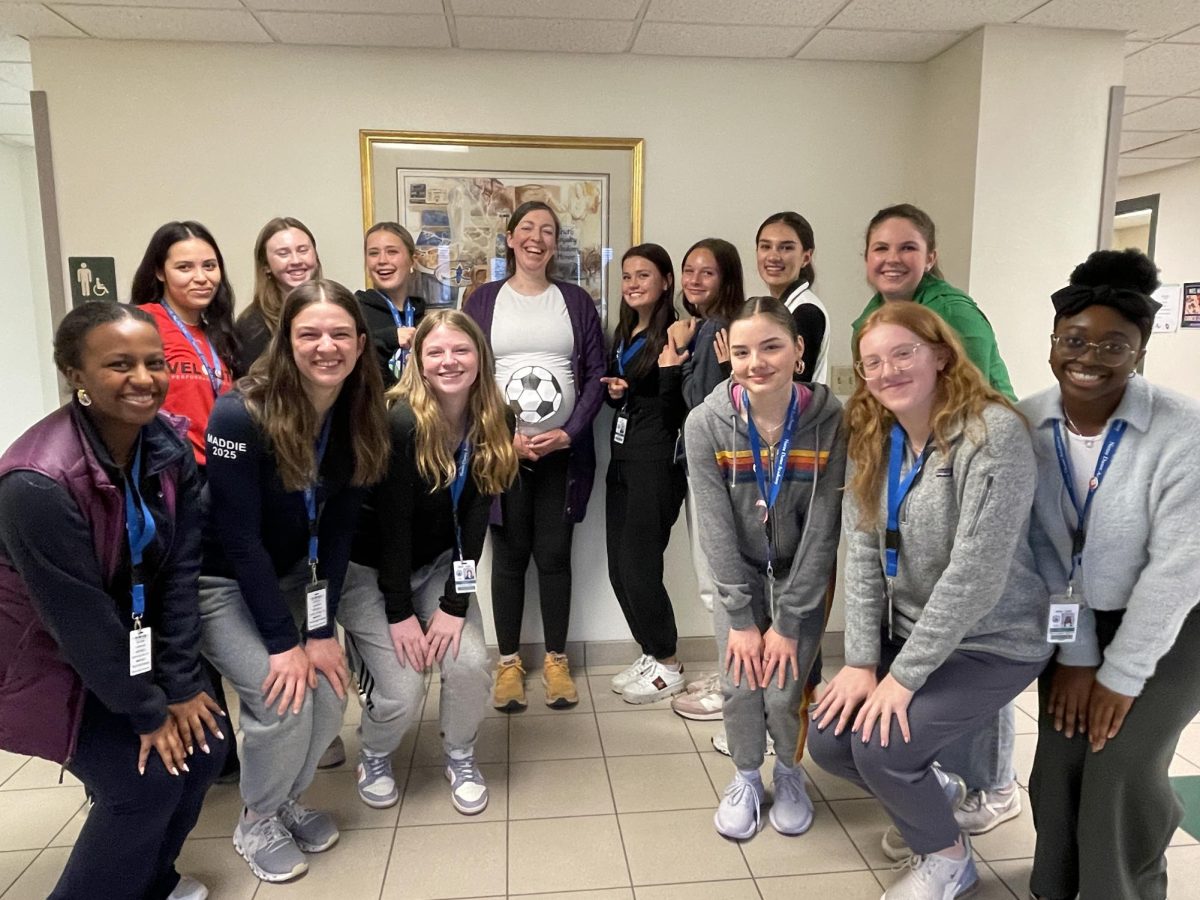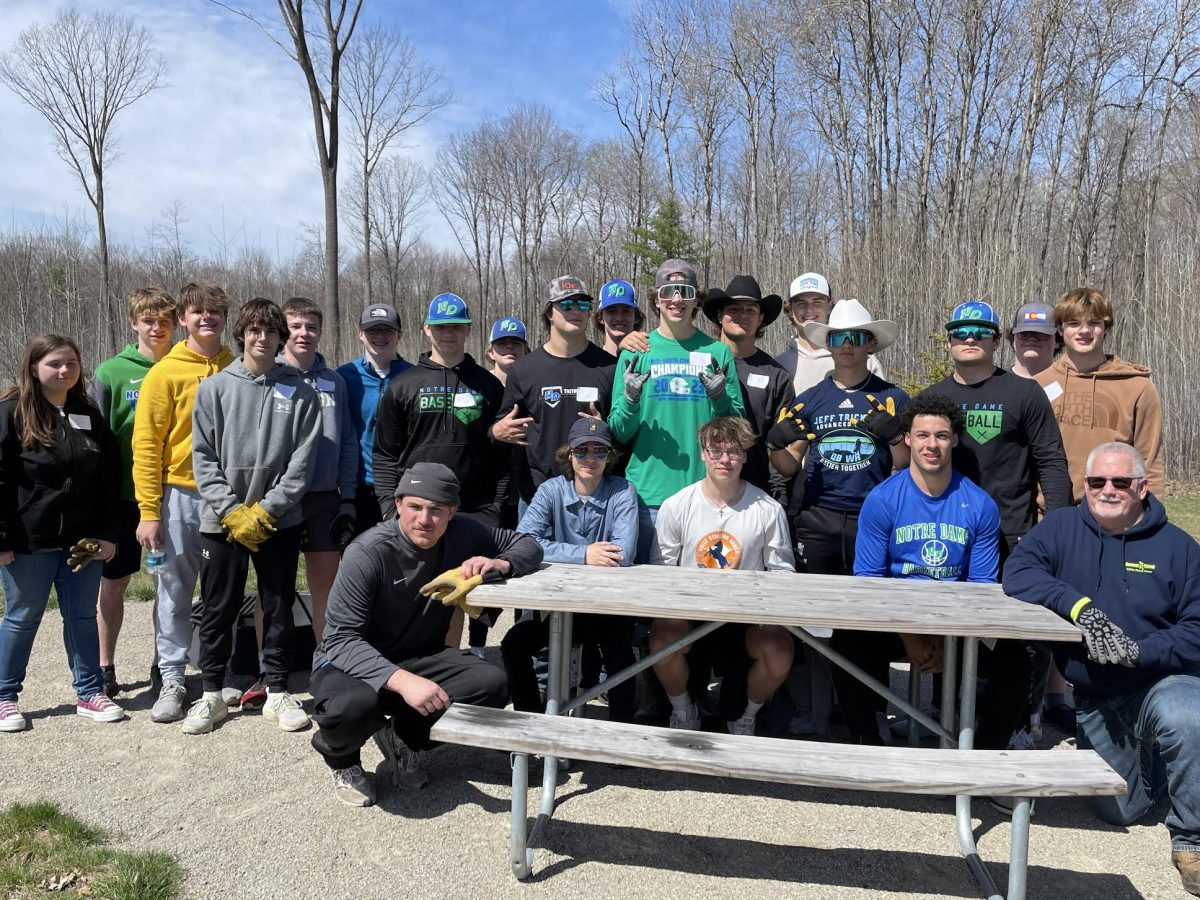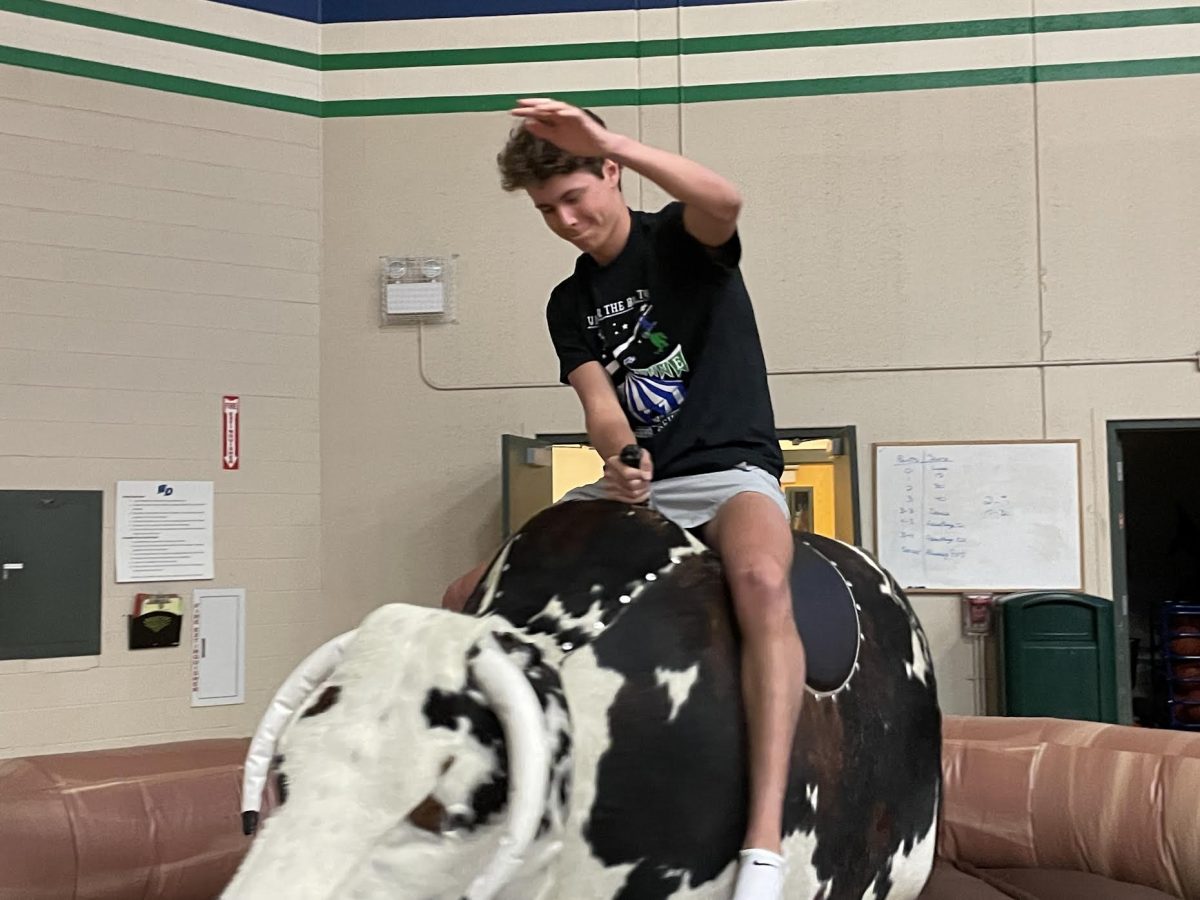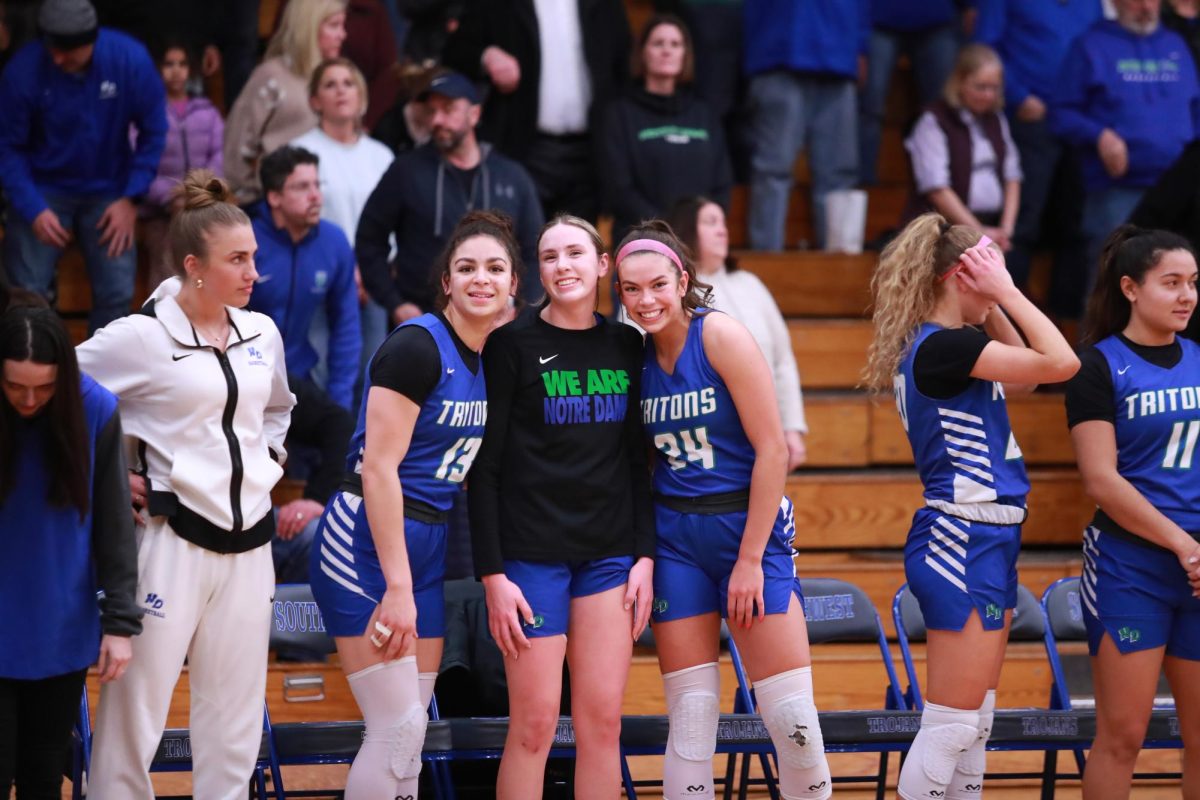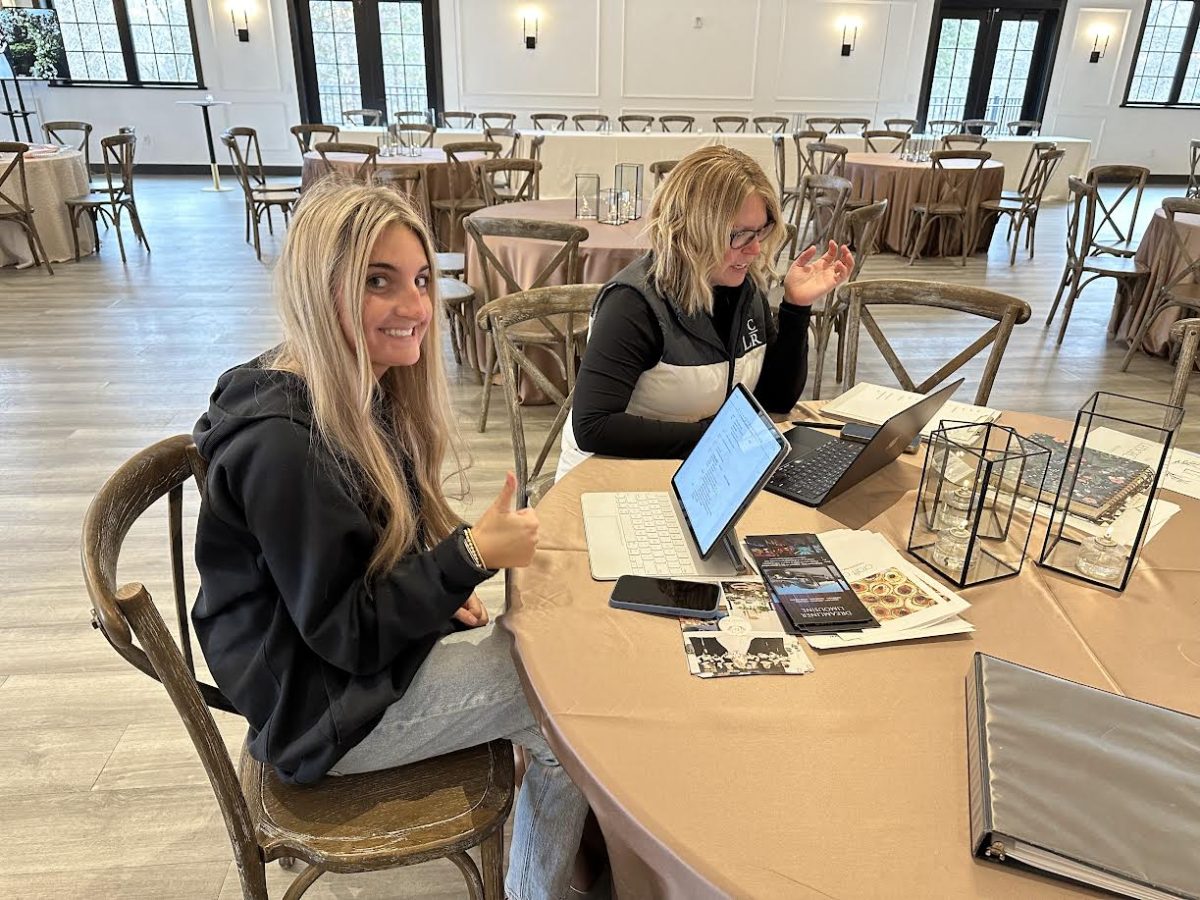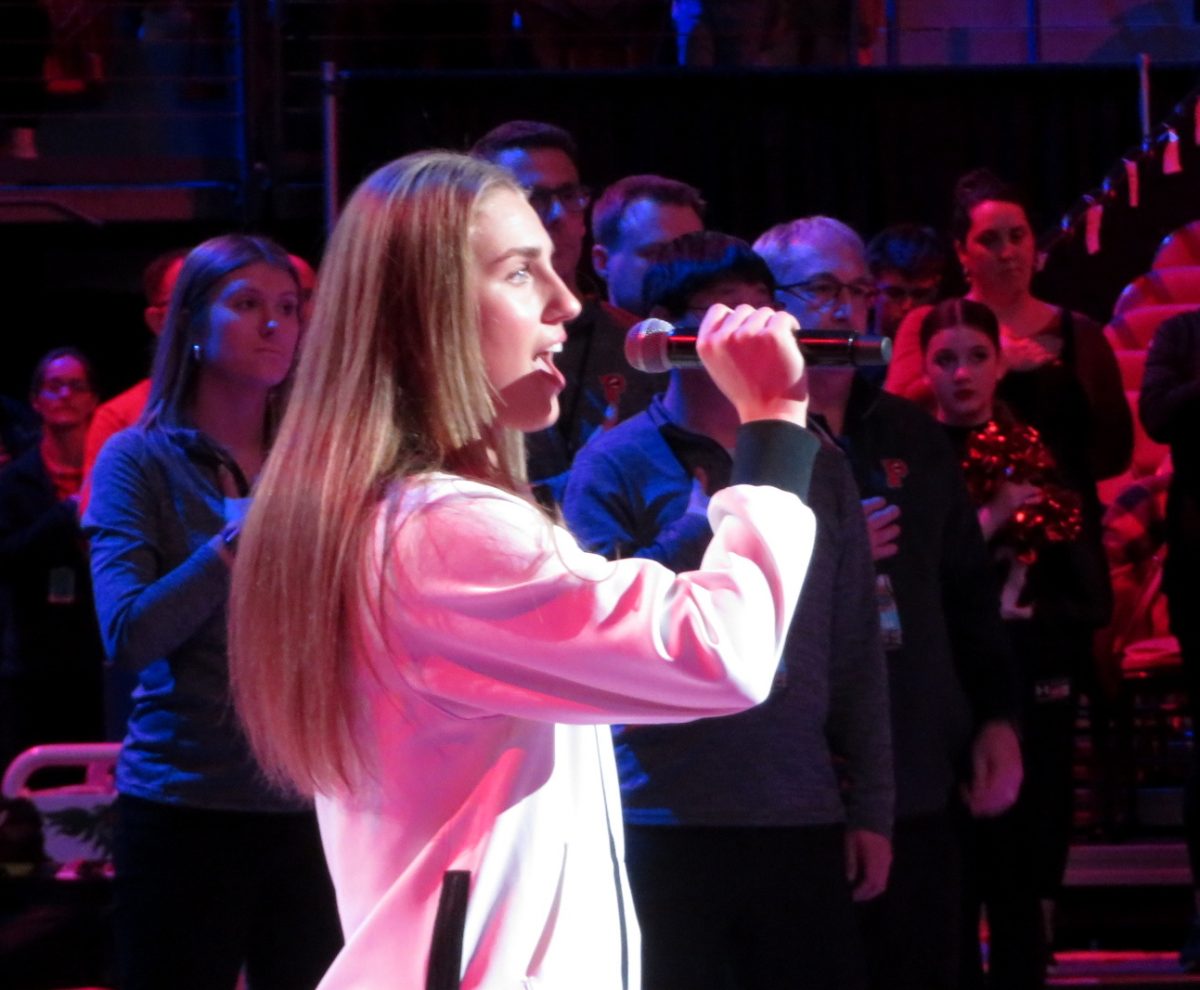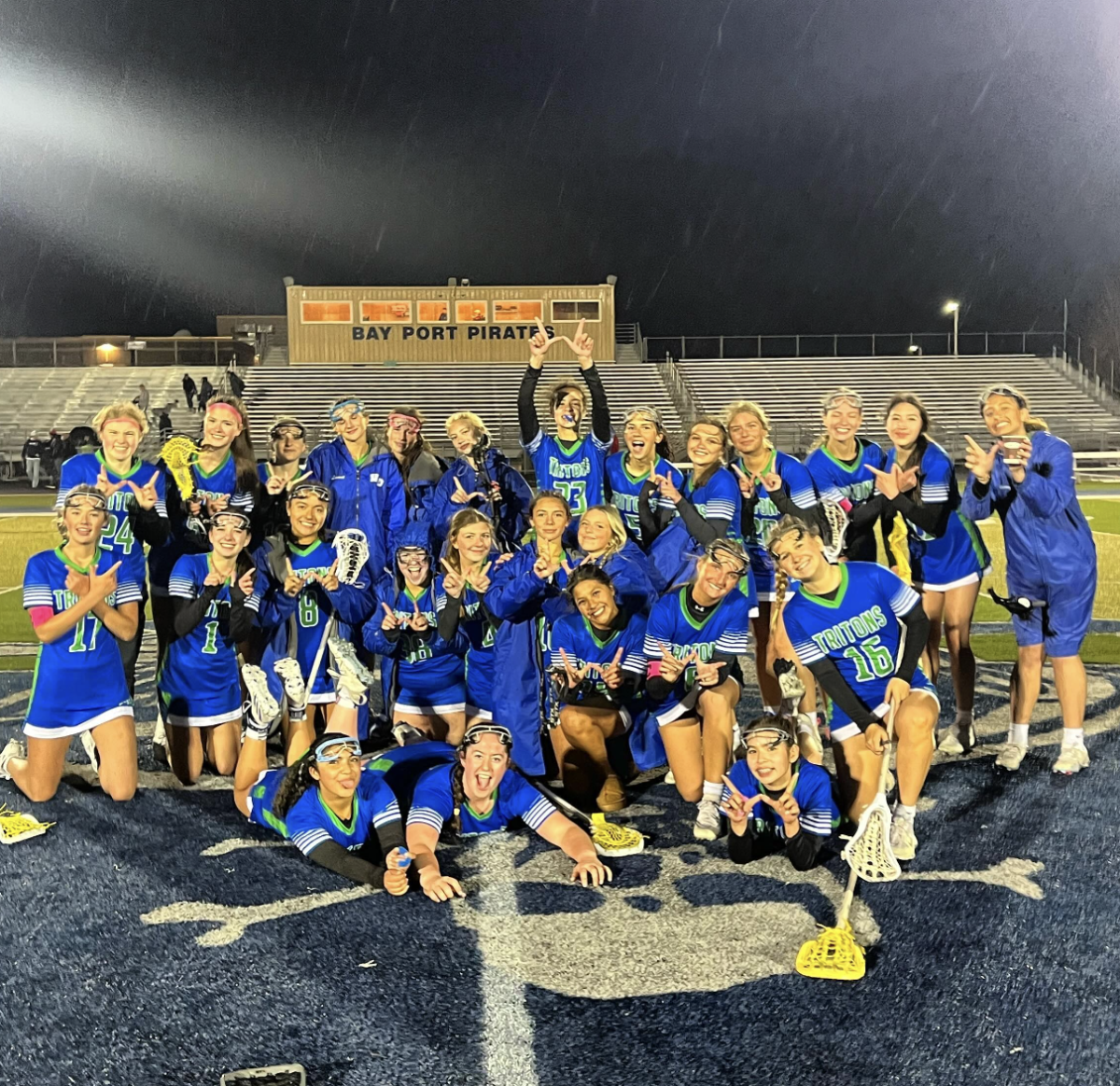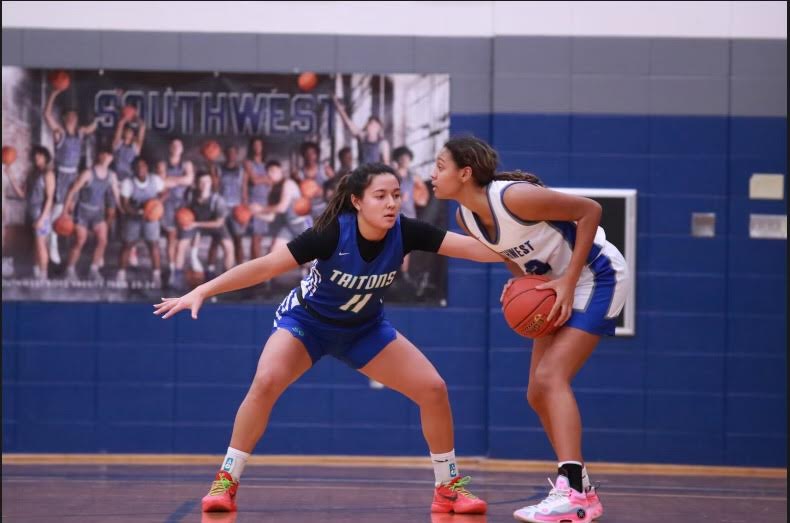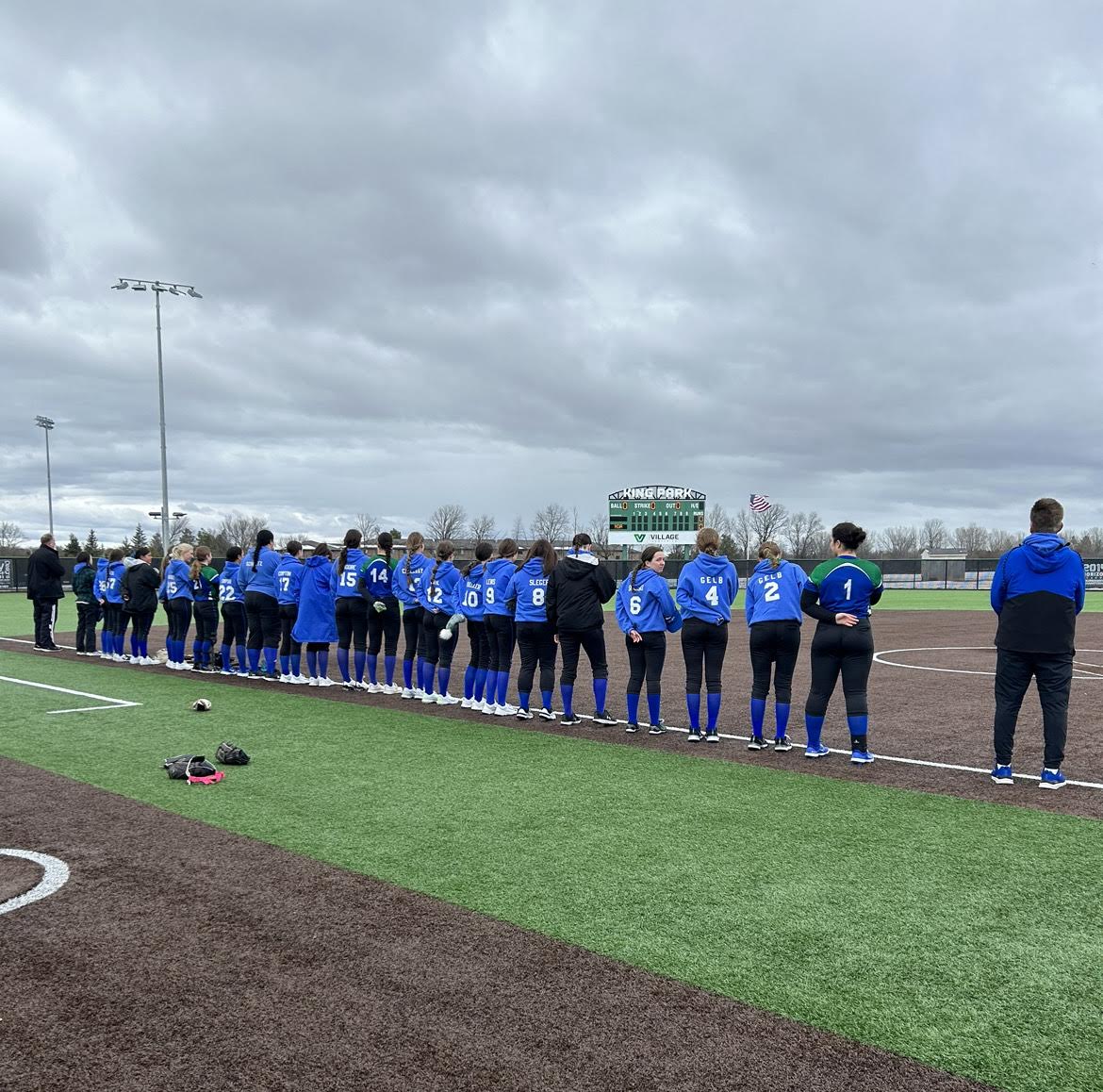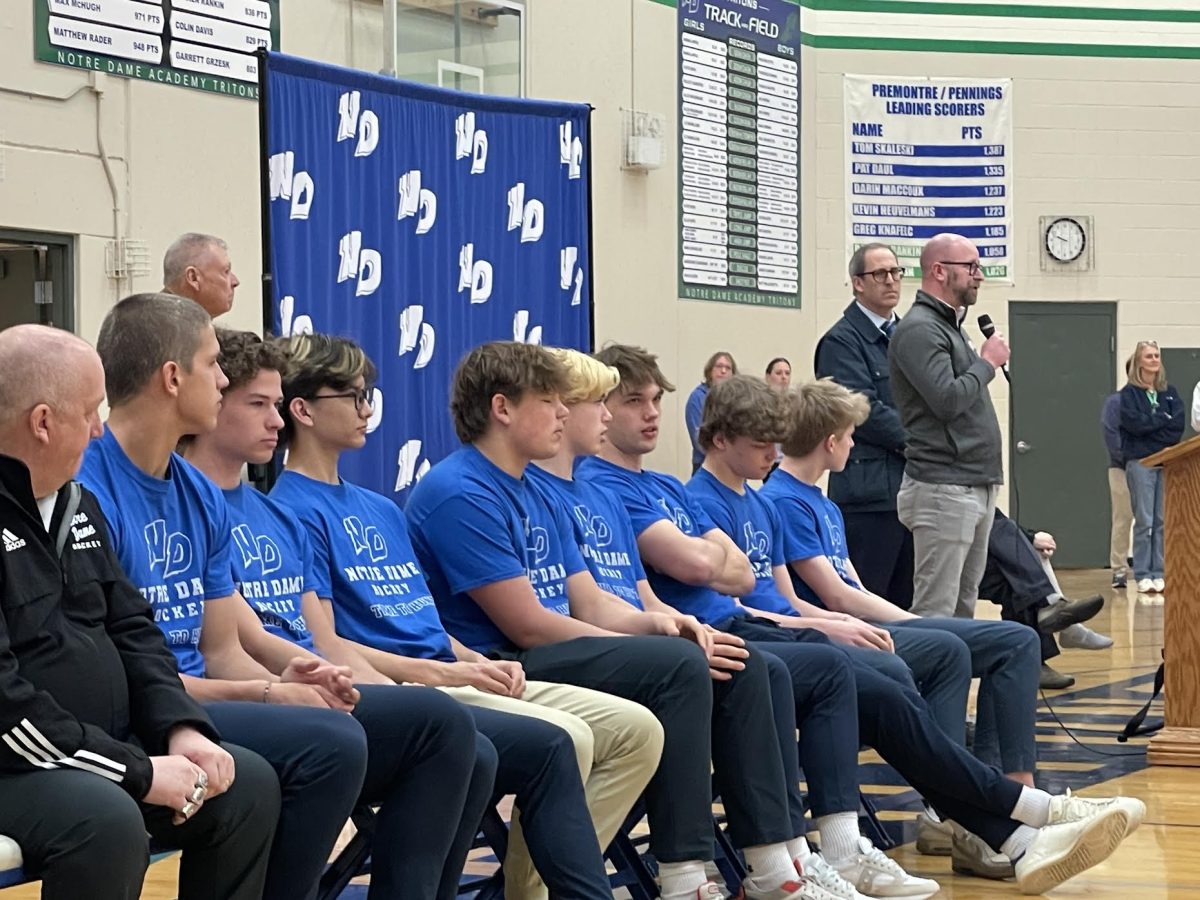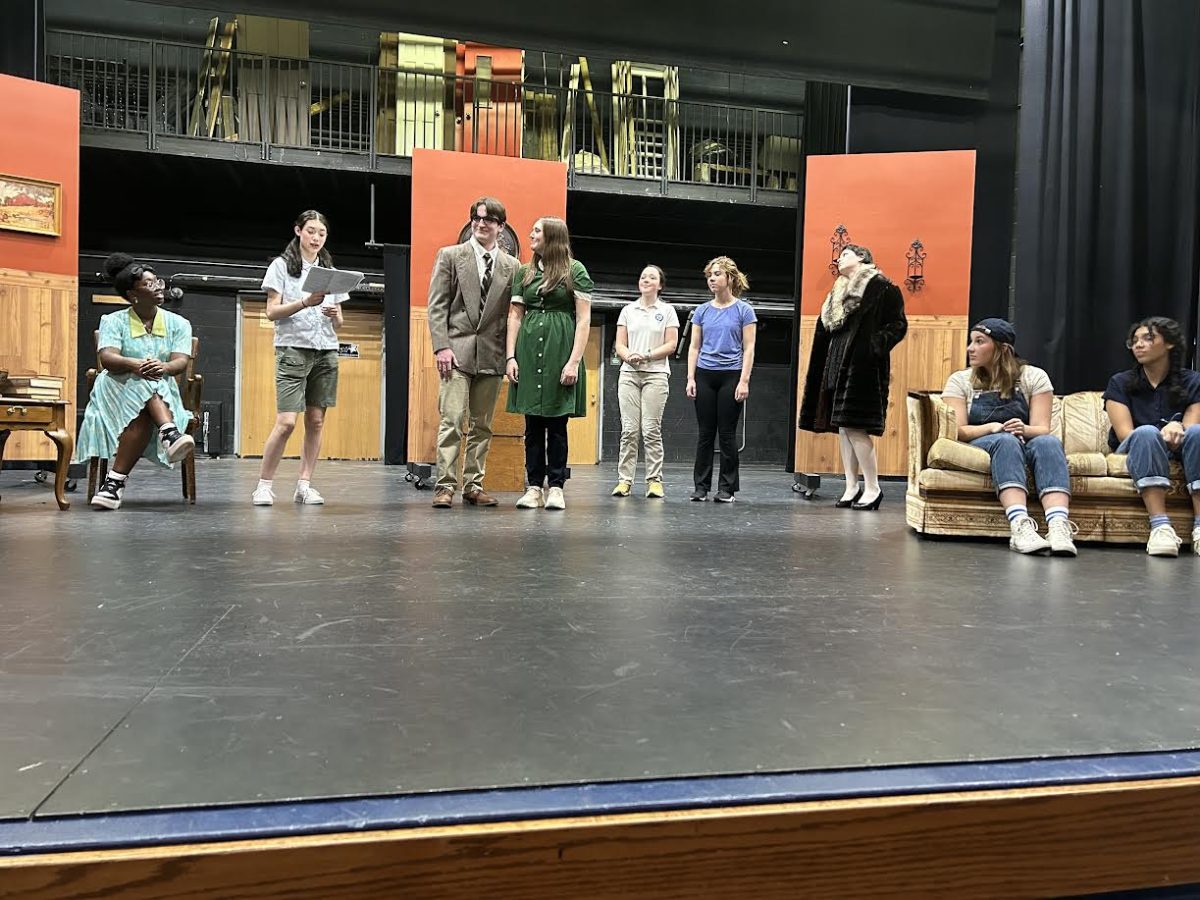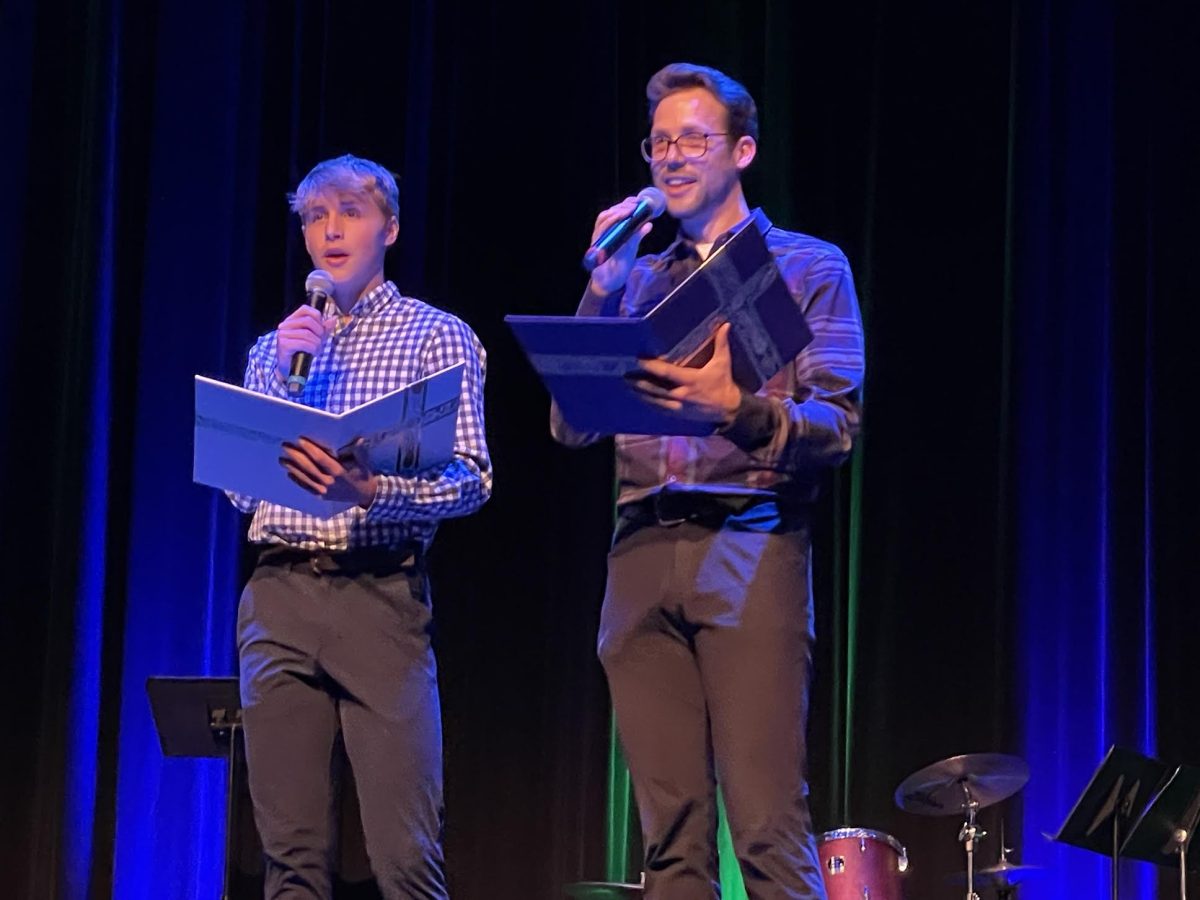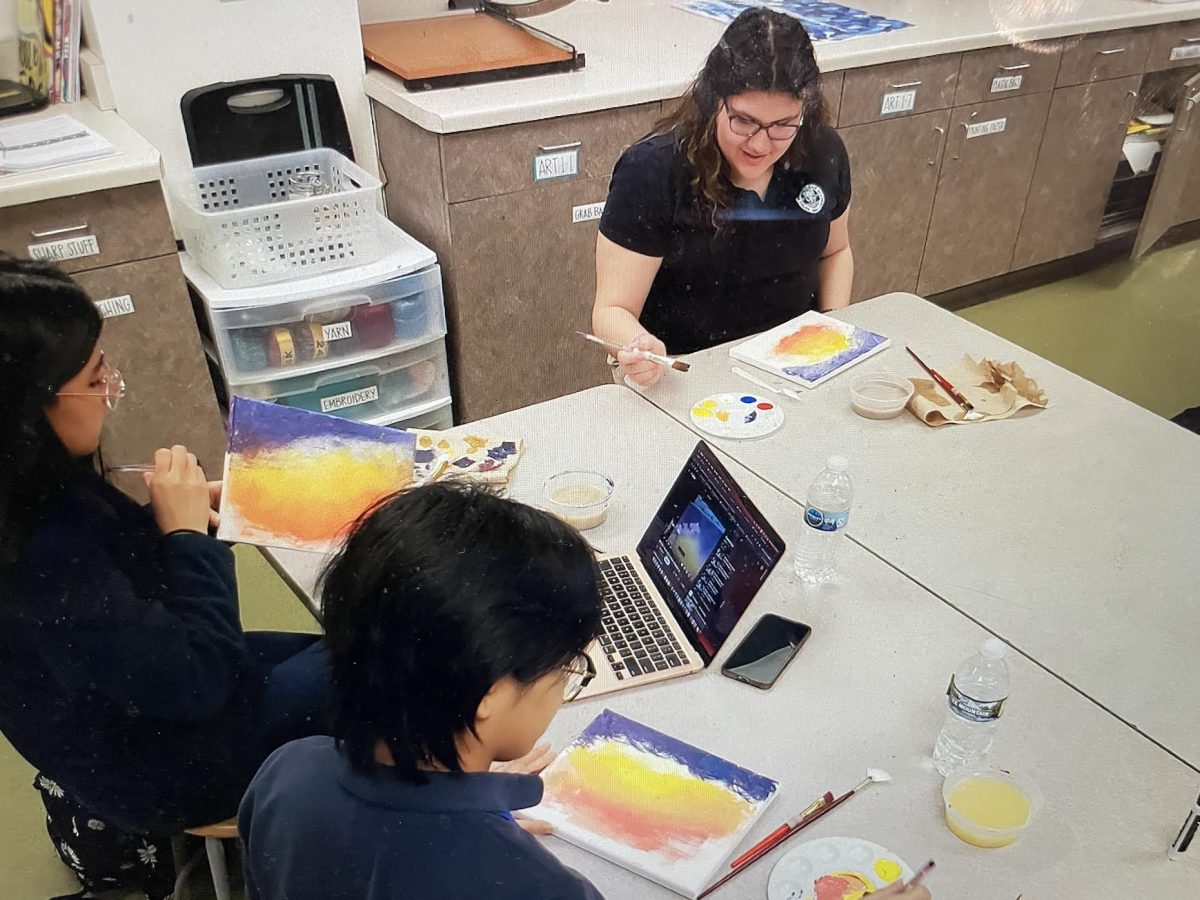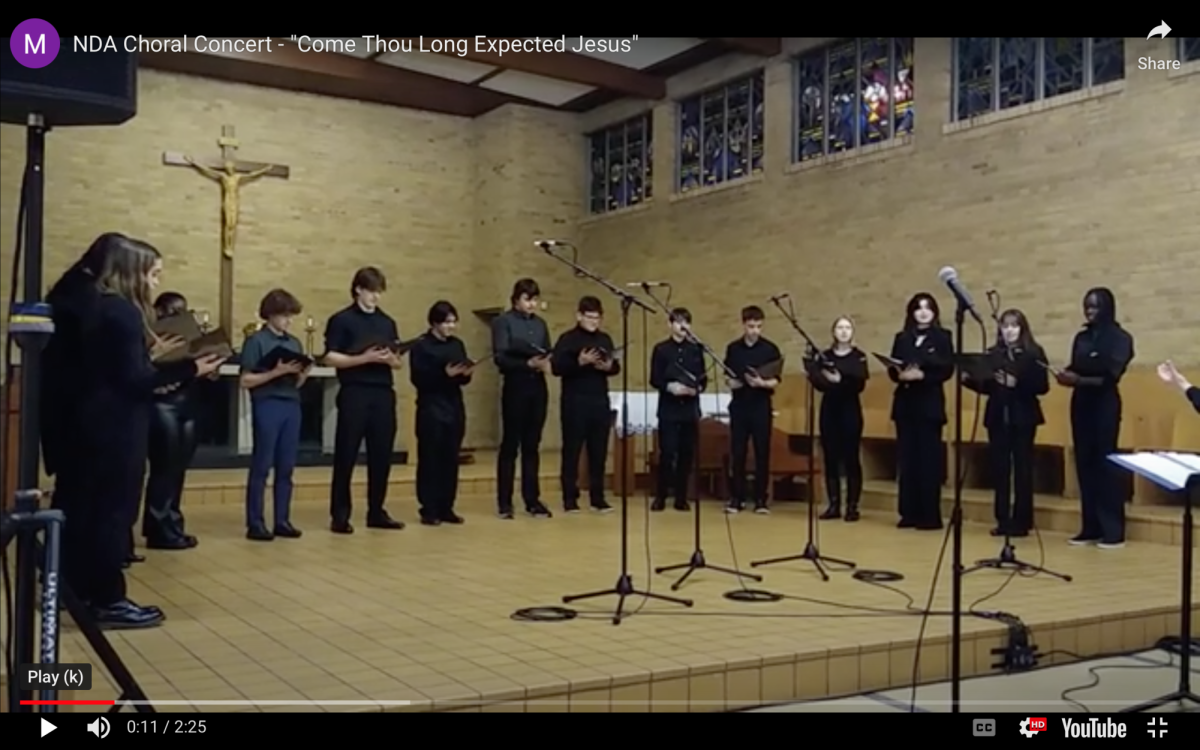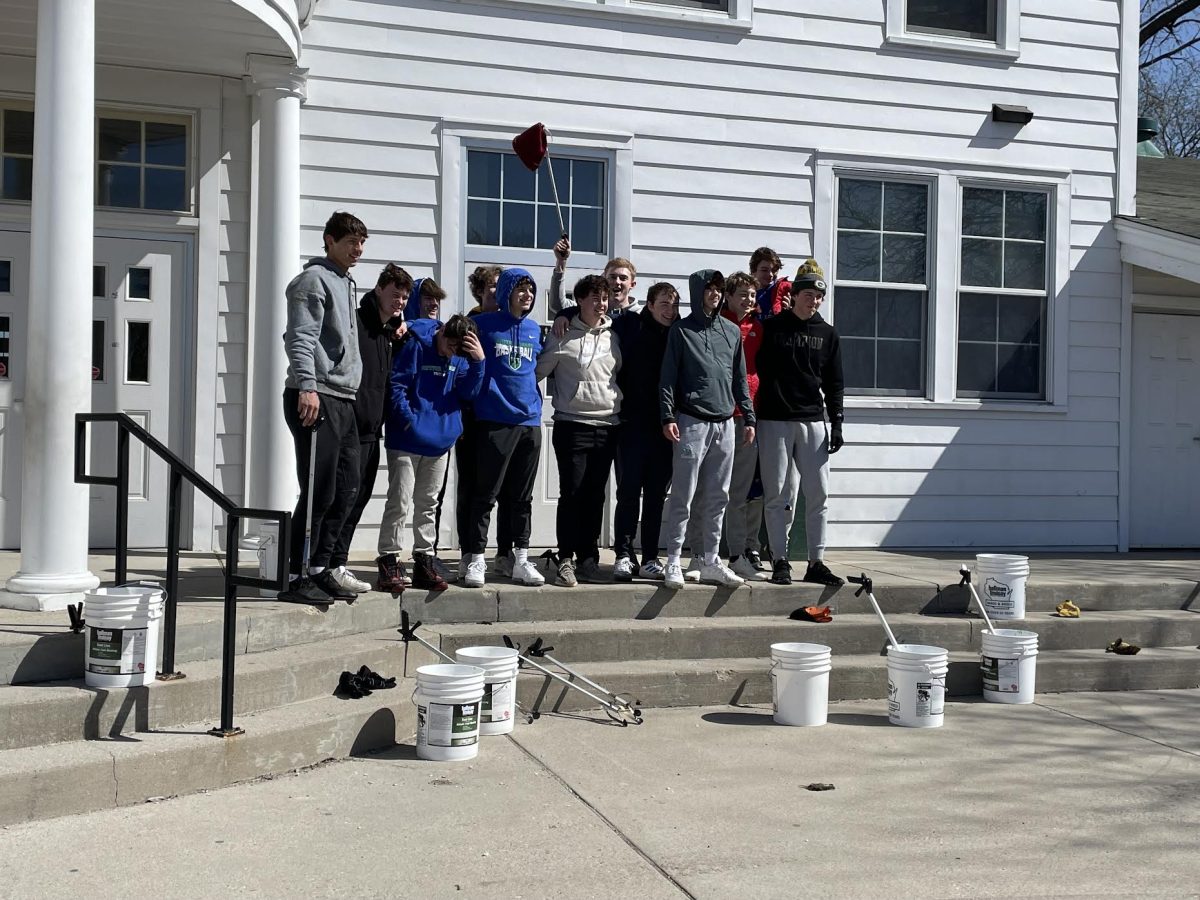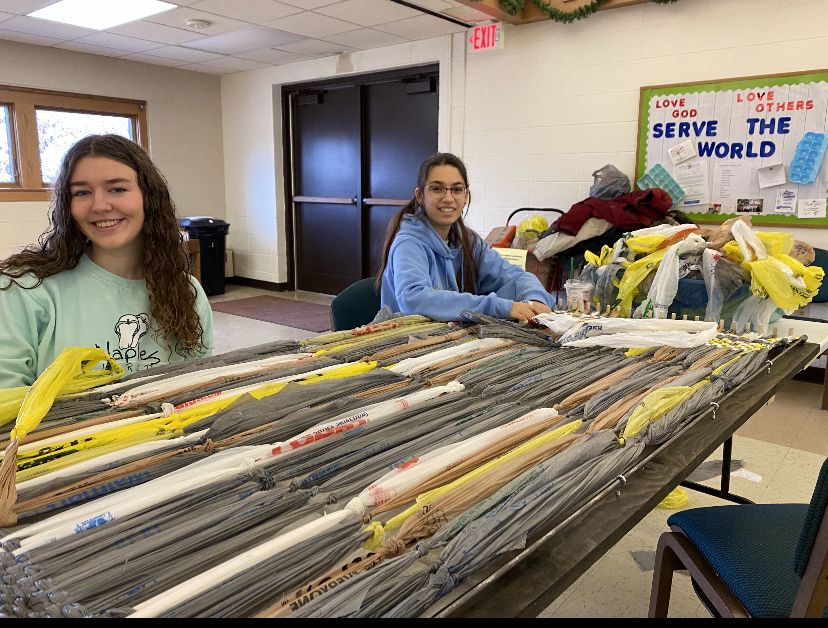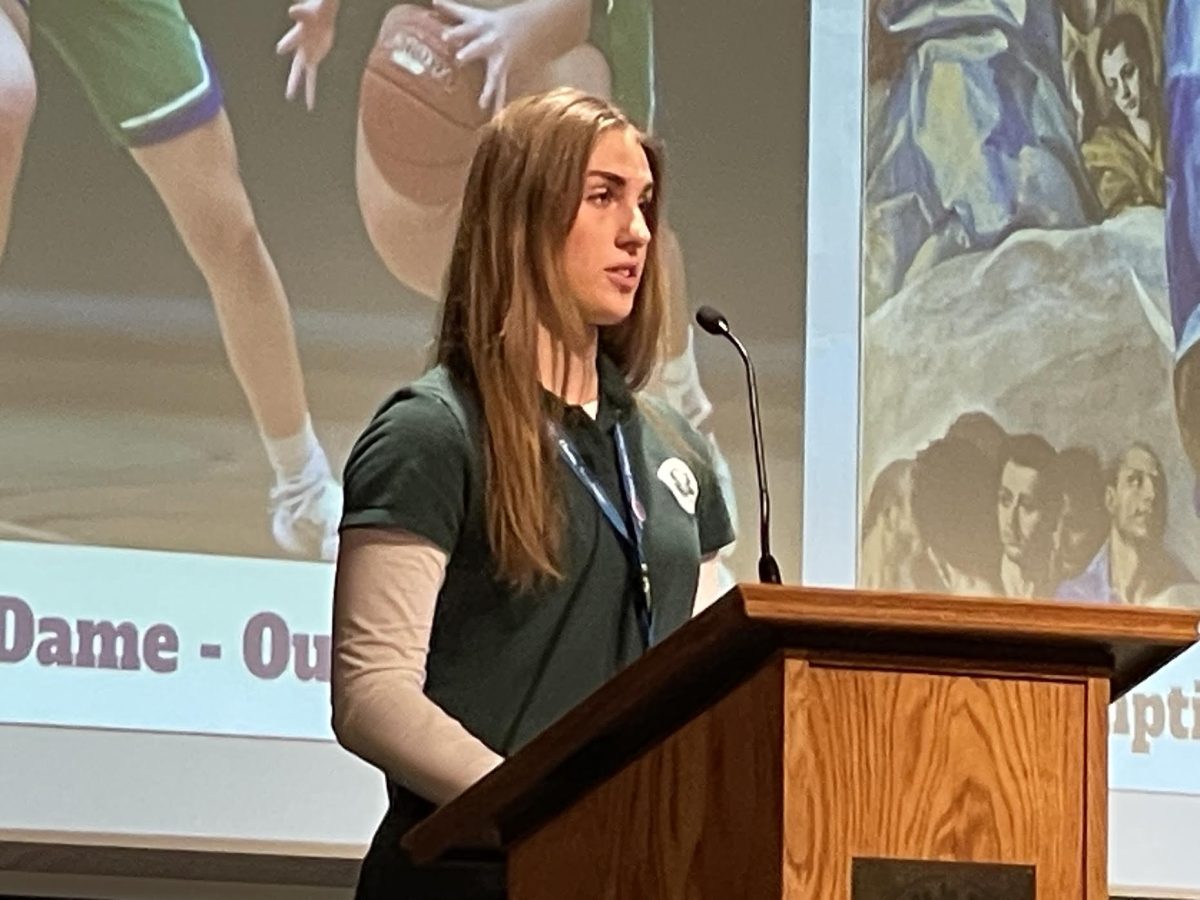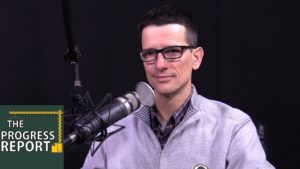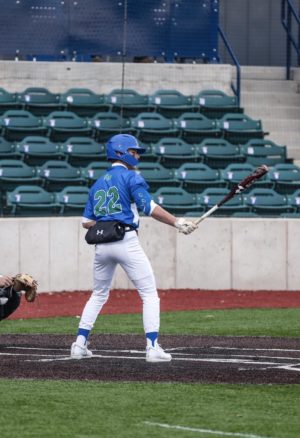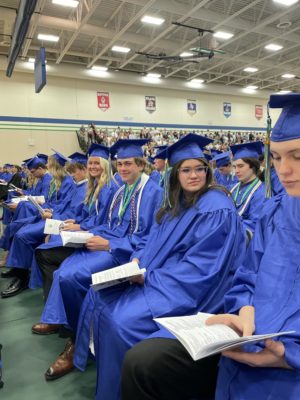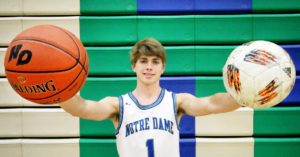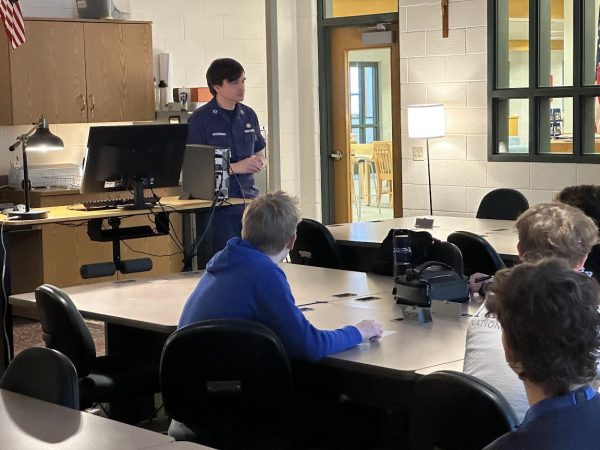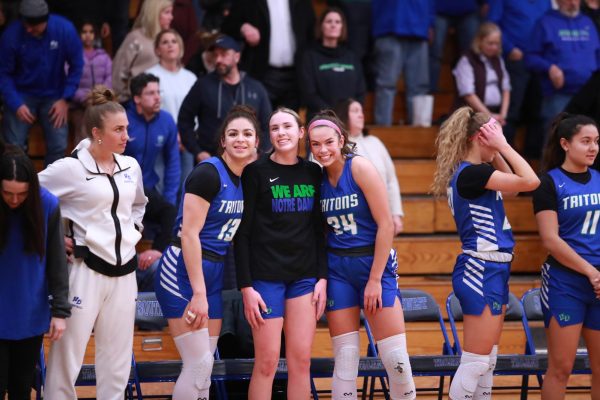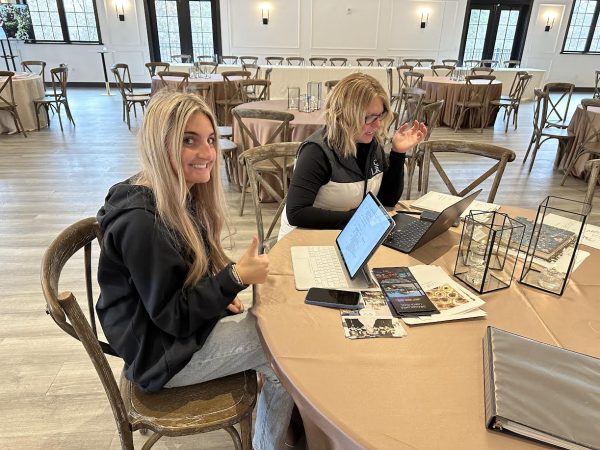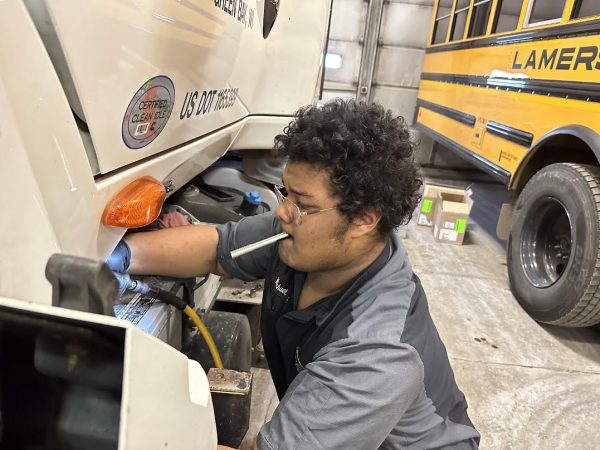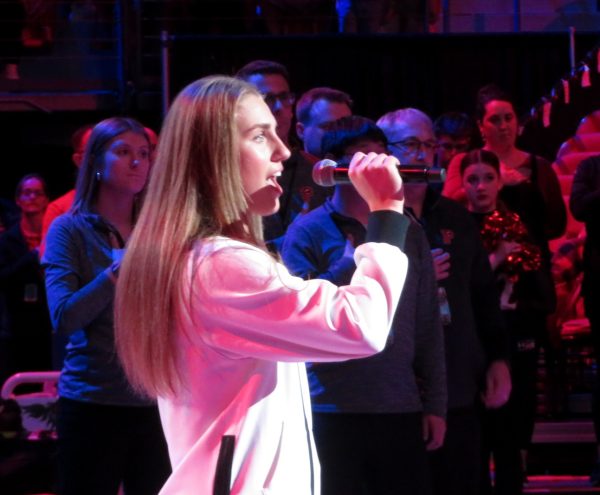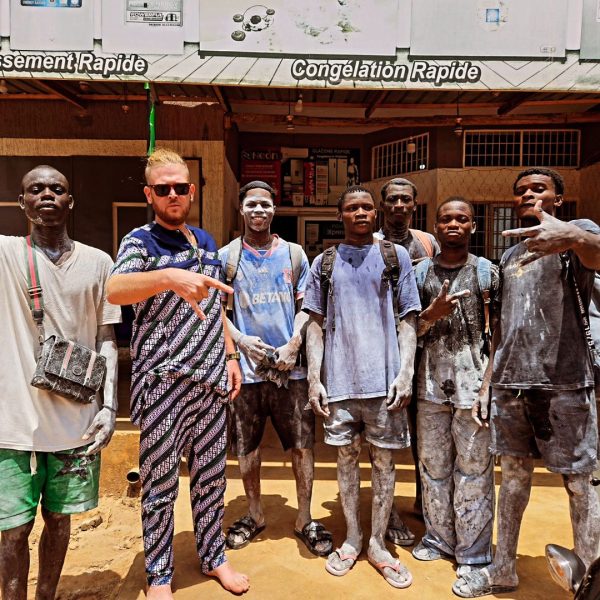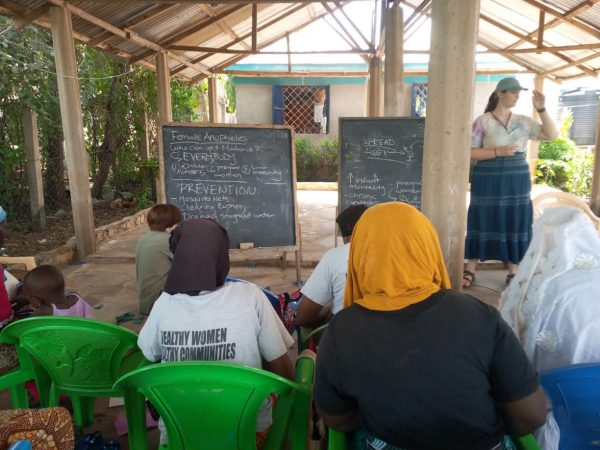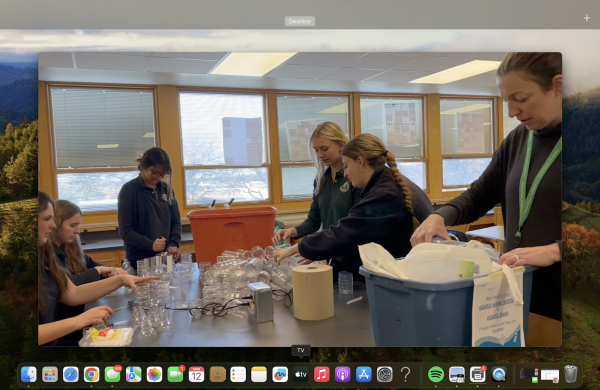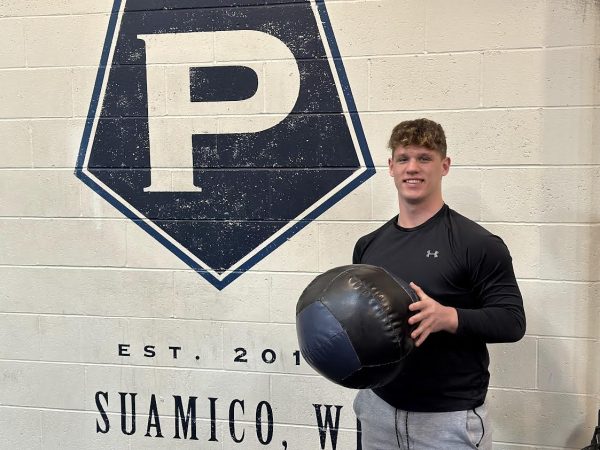NDA’s Newest Teacher: A Man of Travels, Languages, Unusual Experiences
November 11, 2015
Get to know the man who backpacked through South Asia, taught English in South Korea, lived a year on the remote island of Kosrae and somehow ended up as the Applied Sciences and Technology teacher at Notre Dame Academy.
Q: What is your full name?
A: Cory Thomas Faris
Q: Can you tell me the official title of your job?
A: I suppose I am the Applied Sciences and Technology teacher, according to my name badge.
Q: Did you teach anywhere before NDA?
A: I did. I graduated in 2010 and chose an island at random on Google Maps. It turned out to be Kosrae, Micronesia, and I decided I wanted to go there. So I wrote a letter with a bunch of questions because no one really goes to this island, and I got a reply three weeks later from one of the two guys who works at the post office. He told me that there’s an organization called World Teach. So I applied for World Teach and got a job as the high school physics, chemistry and alegbra II teacher on this little island of only six-thousand people in the middle of the ocean. I was a volunteer teacher for a year. I wast paid a small stipend to live on, but it was basically a year of living on a tiny tropical island with a host family, learning a new language, surfing, scuba diving, snorkeling, and lying in my hammock right on the beach. My house was right on the beach as half the houses are. You’re either right on the beach or right on the mountain side of the road. That was my first year.
Then I went to South Korea where I taught English to first through sixth-graders. I did that for a year to pay off my student loans. Then I went backpacking through Southeast Asia and India. I taught English along the way as I travelled for about two and a half months. I just went wherever, spent about a month and a half in Thailand, and while I was there I was teaching English to people in the community who wanted to learn English. When I was in India, I trained teachers in the Himalayan mountains. A friend of a friend of a friend type thing occurred, and I went for about a week and a half to train the teachers at his school; there were 35 students at that school. So that was about two and a half years of overseas teaching.
Later I substitute taught in America for a little bit. And then I started my own summer school in Duluth, Minnesota. It was a ten-week program called The Learning Institute for Excellence. It was just a way for me and my neighbor to mentor youth and get them to spend their time with us in the summer. We taught anything from pre-algebra through algebra II, pre-calc, physics, chemistry, robotics, programming, philosophy and personal finance. Every Friday we would have leadership building exercises and challenges, and then we’d give an inspirational talk. So that was kind of fun! Then I taught in North Branch, Minnesota. I had a two-year contract there. I taught physics, ninth-grade physical science, and then an engineering class “principles of engineering.” And now I’m here.
Q: How many languages do you speak?
A: That’s not the best question. How many languages can I speak fluently? Two. So that’s English and Kosraen, which is my island language. How many languages have I had conversations in? Over 35. I have some techniques that I’ve learned for how to learn languages without translating. So I can learn any language without translating if I have a rock and a stick. Those two objects can help me pull the language out of somebody. I’m not a genius; I wasn’t born with gifts. I tell people I’m not a genius; I’m a veteran. Everybody’s born not knowing things and you learn how to do things. I’ve learned techniques of how languages are learned better, so I use those techniques to have conversations.
When I was in India I taught myself how to read Hindi while I was on the subway one day because every stop they would announce what the stop name was and I was looking at the map to see what the funny little characters were. After riding the train for about three hours that day, I had pieced together what sound each funny little shape made. I asked my Indian friend if I could read the signs to him, and I started reading signs and he told me I was right. So I had learned how to read Hindi on a bus.
Q: How did you hear about the job?
A: I actually came here to be a substitute teacher. The first day that I came to sub for Mr. Lagerman, Mr. Ravizza called me into his office and told me they had this position that they needed filled and I had all of the credentials. Basically, it was a job I knew how to do and I just walked in his door and said “sure that sounds like a lot of fun. I would love to do that.”
Q: What would you say that your teaching methods are?
A: I’m a firm believer in student autonomy,so basically that means showing students how to teach themselves. Here, it’s a lot of facilitated learning that I do. Students work on their own and I give advice and that sometimes can look really easy but sometimes is really hard. I believe in making mistakes. I used to have a sign in my classroom that just said MAKE MISTAKES in big letters because if you’re not making mistakes that means you’re not challenging yourself, and it’s important to challenge yourself. If you’re failing once in awhile that’s good; that means you’re doing hard things. Don’t be afraid of failure.
Q: What college did you go to and what did you major in?
A: I went to Coe College, the college with the shortest name. It’s in Cedar Rapids, Iowa. I got a degree in physics.I majored in physics and got a minor in computer science.
Q: What made you want to go into a technology-based career?
A: When I was in second grade, I decided that I was going to change the world. When I was in fifth grade, I decided I liked science so I thought, “All right, I’ll win the Nobel Prize.” I had very, very realistic goals, you might say. When I was a junior in high school I took physics and I had a really great science teacher who gave me the book The Elegant Universe by Brian Greene. I just continually asked questions. I had a little notebook that I carried around in my back pocket all the time and when I had a question about the universe I would write it down. I would ask my science teacher to explain them to me and after a while my questions got so challenging that he didn’t know the answers. He didn’t know where to look, so he told me to do the research. Eventually I ended up reading some interesting books and got really hooked on physics. I thought I would want to get a PhD in physics and work in a laboratory. I did three summers of that in college, including the summer before my freshmen year. I got a scholarship to do ten weeks of graduate level research at my college and got published for that. But I decided I didn’t want to work in a laboratory, that I wanted to become a teacher. I love mentoring people and helping people become better at living life.
Q: Do you have any advice for students considering going into the engineering or applied sciences and careers similar to that?
A: I highly recommend going into the technology field. Our world is becoming so much more technological and specialized. I would say six to ten years out from now we will see autonomous vehicles out in the world. Mechanics won’t be fixing them anymore. It’s called robotification of the world. Robots are replacing more and more of the work force. There’s a huge boom. Go into the STEM fields. Anything you do make sure you’re doing it to the best of your ability. You might think you know what you want to do with your life right now. Studies show that people change their careers seven times in their life. Wherever you are in your life, make sure you’re learning as many things as possible and working as hard as you can at everything you do. Whatever you’re doing, do it to the best of your ability. Don’t be complacent. Always look for a way to make your life and the lives around you better.
Q: What is your favorite part about your job?
A: The opportunities I have to have conversations with students. In other teaching positions I’ve had it was constantly me just teaching directly, and I got away from that very quickly. In my previous job I would set up learning experiences where students would fumble through something and learn by trial and error rather than my telling them. And here it’s all discovery learning, where students stumble across the answers on their own. Students will tell me they don’t know how to do this, and I just ask them what are your resources, how do you figure out how to do it, that there are students who’ve done it before you. Teachers can’t tell you everything; it’s important for us to teach you how to find those resources. I enjoy guiding students and having conversations and getting off topic. In the past it’s been like “we don’t have time to talk about that because I have to teach you about Newton’s laws of mechanics” or whatever it may be.
Q: Is there anything you would like to add?
A: My mission in life is to fight “world suck,” which is all the things in the world that suck– poverty, homelessness, addiction, disease. I want to fight against those things. We are making some really great progress, but there’s still a lot of work that we need to do as far as girls going into STEM fields. We need women engineers. That’s why I love that in my engineering classes we’ve got some girls, and I’d love to see more. I want to encourage them and it provides great careers. No matter what it is I’m doing in life I want to ask: How am I making the world better? As a teacher I want to make sure I’m educating people about these problems; engineers and scientists help solve these problems in the world.


